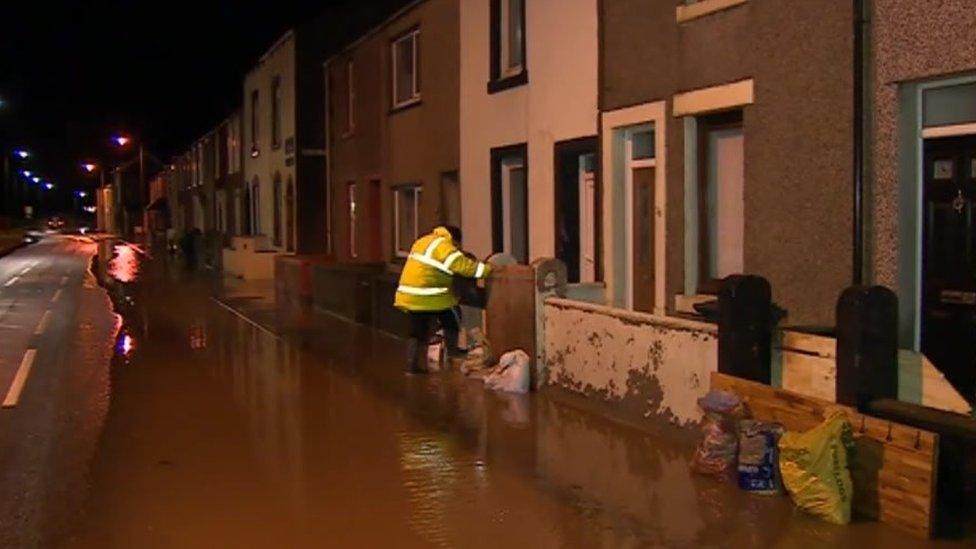Repairs needed after Cockermouth's flood defences left 'vulnerable'
- Published
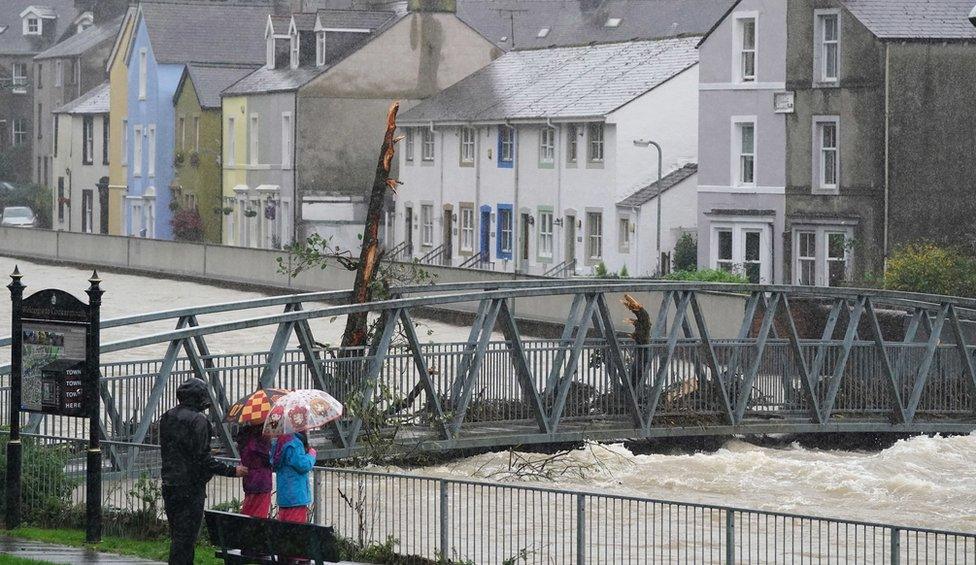
High river levels in Cockermouth in October
Cockermouth's flood defences could fail if repair work is not carried out, an expert has warned.
Part of the bank along the River Cocker has been washed away exposing the defences that were installed after devastating flooding in 2009.
Darren Ward, architectural advisor to Cockermouth Civic Trust, said they had been left "vulnerable".
The Environment Agency said the defences were "very solid" and repairs would soon be carried out.
In November 2009 water levels in the town reached up to 8.2ft (2.5m), forcing homes to be evacuated and hundreds of people being rescued by emergency services.
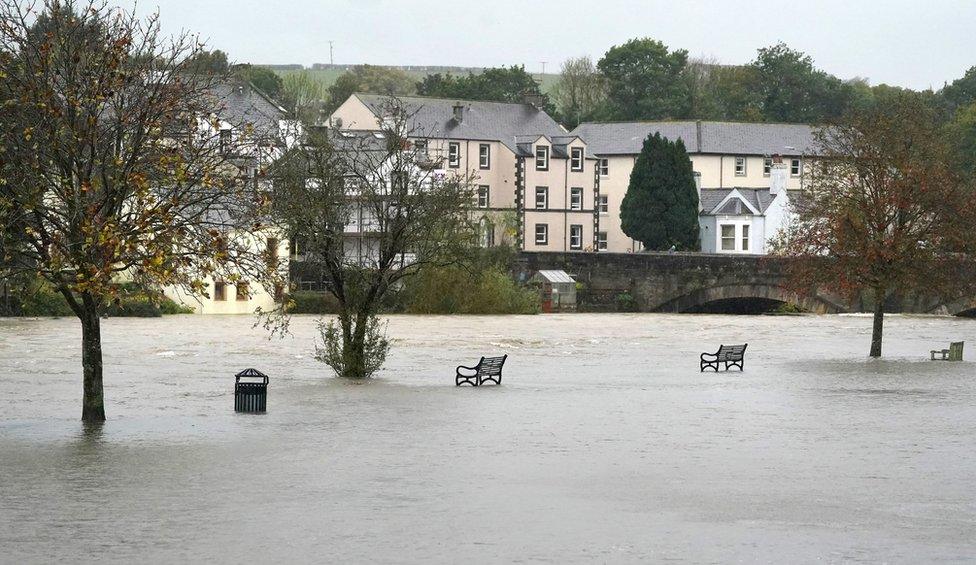
The town's flood defence will undergo repairs within weeks
The town avoided significant flooding following heavy rainfall in October, with the flood defences protecting the town.
'Challenging job'
Environment Agency teams are due on site within two weeks and it would take about a week to repair, with a more permanent fix being looked at in early 2022.
One challenge is accessing the defences, situated about three to five metres back from the riverbank in the car park of the town's former police station.
It could see a large crane used to lift materials, such as stone-filled bags, from the other side of the river, to give the defence some protection ahead of any high rainfall.
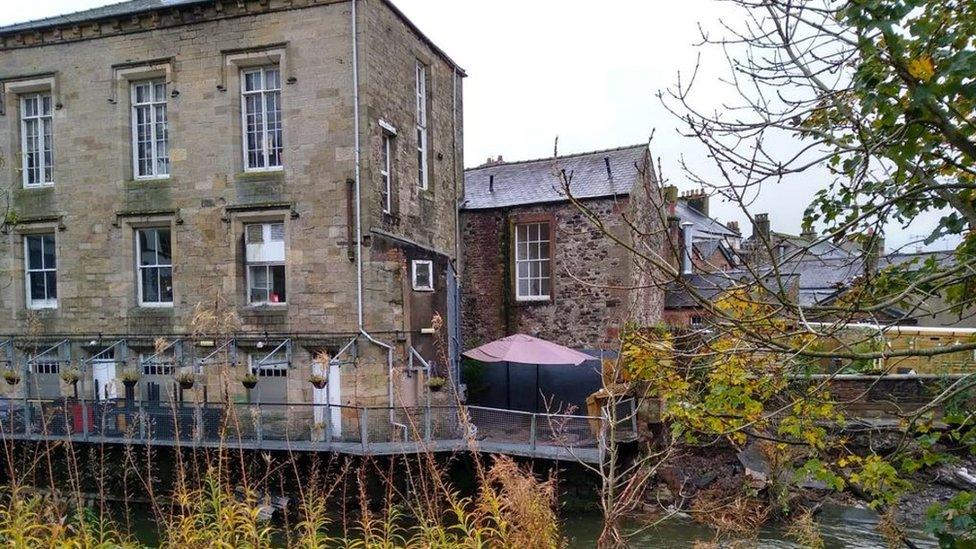
The building has been shut for the foreseeable future over fears a cracked wall could collapse
On Wednesday the Grade II-listed Old Court House on the riverside was forced to close after recent heavy rain left its rear wall on the verge of collapse.
Defences were "overwhelmed" during 2015's Storm Desmond, which saw floods affect nearly 500 properties.
"Since the floods, that section of riverbank has collapsed and washed away, exposing the defences that are still intact, but they are exposed in such a way that they are vulnerable to future events," Mr Ward said.
"If no work is done to those defences then potentially they will fail in the next event and the town is then exposed as it was in the 2009 floods."
Matt Crumb, operations manager for Cumbria for the Environment Agency, said access was "quite a challenging job".
"The defence is intact, we have got no worries about the defence, it's still very solid," he told BBC Radio Cumbria.
"If we were to continue to get more high rainfall events and more of the bank started to erode away, that might potentially give some damage to the defence itself and that is obviously why we want to take this action as quickly as we can."

Follow BBC North East & Cumbria on Twitter, external, Facebook, external and Instagram, external. Send your story ideas to northeastandcumbria@bbc.co.uk, external.
Related topics
- Published10 November 2021

- Published31 May 2016
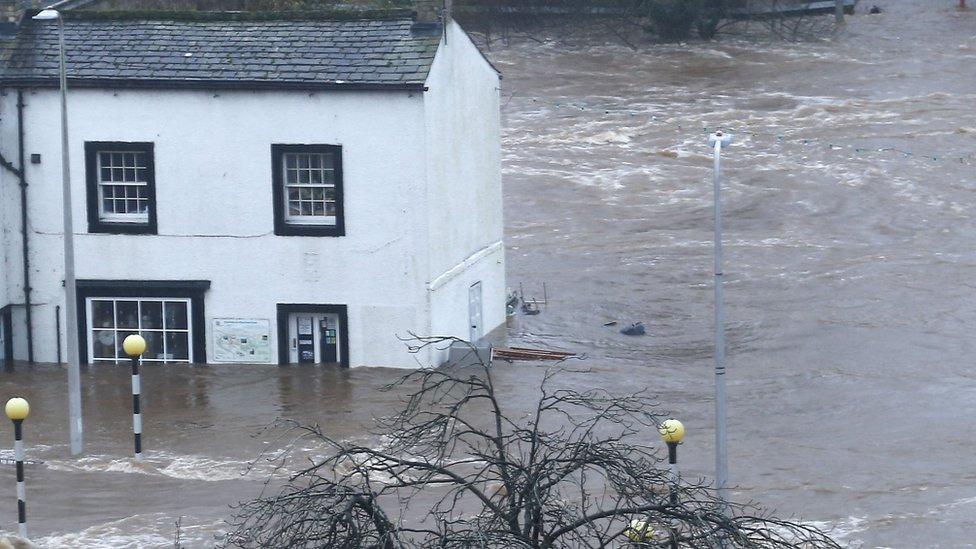
- Published9 December 2015

- Published7 December 2015
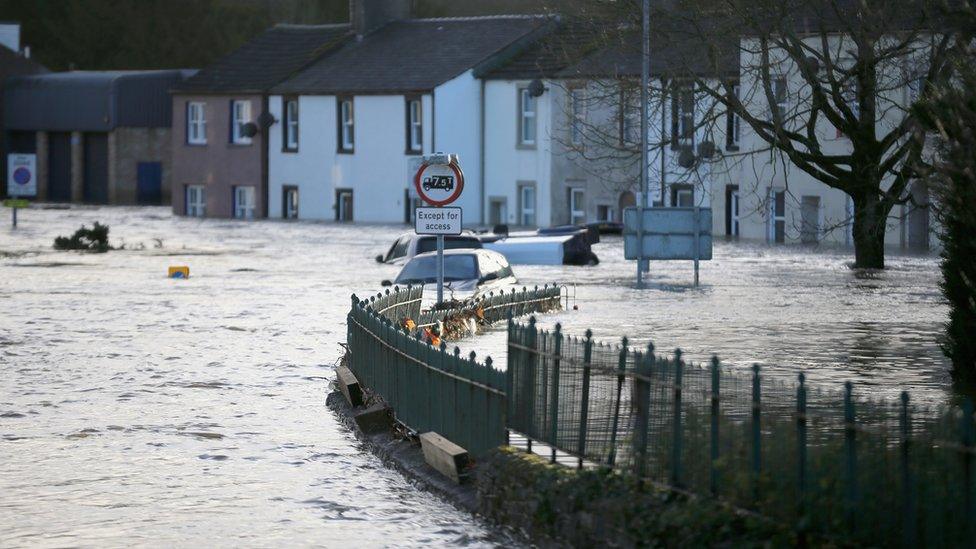
- Published4 December 2015
